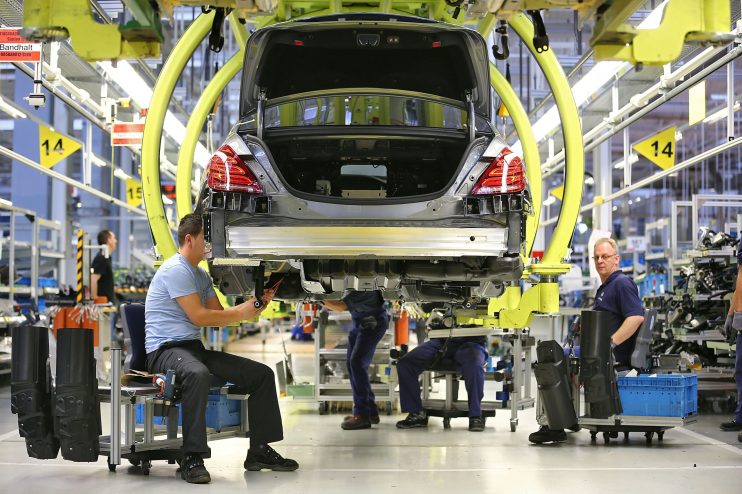Fall in German factory output a temporary setback, economists say

German factory output unexpectedly fell in August, raising alarm bells about the health of Europe’s biggest economy. But economists have backed the sector to resume its mixed recovery in September.
Industrial output fell 0.2 per cent in August after rising 1.4 per cent in July, the Federal Statistics Office said today. The August figure was well below the 1.5 per cent increase economists expected.
Vehicle production – a key part of Germany’s economy – was 12.5 per cent lower month on month after an 8.9 per cent increase in July. Output of both capital and consumer goods was down, the stats office said.
“Industrial production for August was disappointing across the board,” said Martin Moryson, Europe chief economist at asset manager DWS.
He said the 3.6 per cent monthly fall in capital goods production was “particularly regrettable in that this sector is an indicator of investment activity”.
However, economists said that August’s figures do not mark the end of the recovery.
Ralph Solveen, deputy head of economic research at Commerzbank, pointed to recent figures that showed car production in September increased “notably”.
Andrew Kenningham, chief Europe economist at Capital Economics, highlighted a survey from think tank Ifo that showed that firms expect to increase production further. This was particularly true for car, chemicals and electricals producers.
“We think the sector will resume its recovery in the coming months,” Kenningham said. But he cautioned that it is “not likely to get back to its previous level until well into 2021, at the earliest”.
Solveen said that production is likely to “resume its upward trend in September”. Yet he also said that the pace is likely to slow down “more and more as production approaches its pre-crisis level”.
Outlook remains worrying for German economy
German industrial output stood at almost 90 per cent of its pre-coronavirus level in August, the statistics office said.
The German economy shrank by a record 9.7 per cent in the second quarter. Since then it has rebounded relatively strongly, although growth has slowed as pent-up demand has been released.
Germany has so far avoided the sort of coronavirus second wave that the UK, France and Spain have seen.
Yet the future remains troubling. Germany’s export-focused economy means it could be hit hard by slowdowns in other countries. And Brexit is on the horizon, with a trade deal not yet agreed between the UK and EU.
Kenningham said: “While the outlook is better than in some countries, helped by Germany’s generous fiscal support and kurzarbeit [short-time work] scheme, and strong export demand from outside the Eurozone, a full recovery will not take place for a long time.”